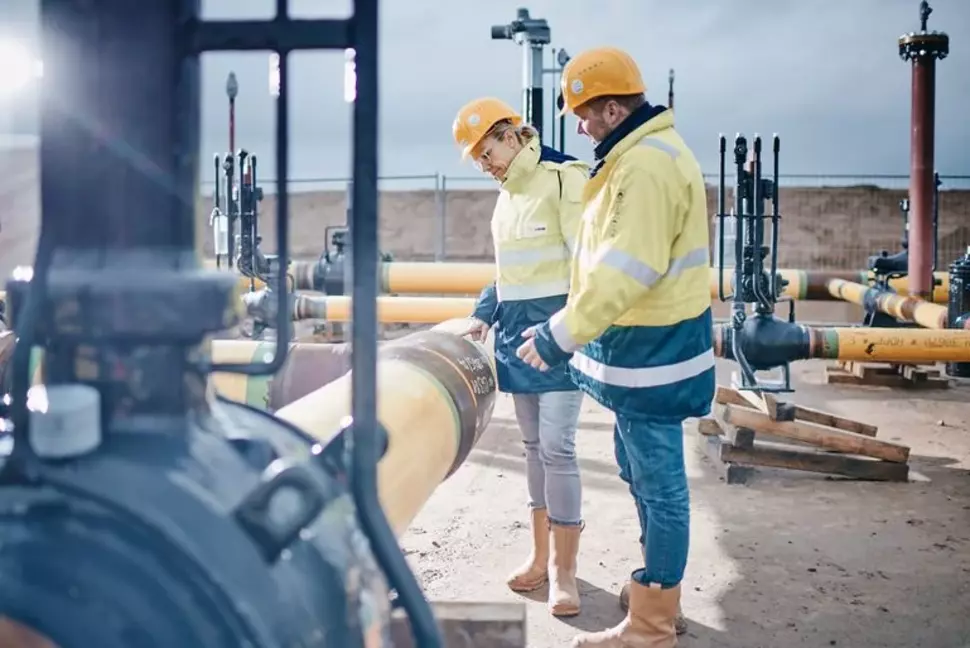Leipzig Region: A New Beacon for Hydrogen Technologies
Producing, storing, transporting, and consuming green hydrogen – the joint project “LHyVE” is well on its way to turn the Leipzig region into a significant shining beacon for hydrogen technologies.

IPCEI Project "LHyVE"
In 2019, LHyVE was selected as one of 62 large-scale German projects which are to be funded by the Federal Government with a total of more than eight billion euros within the scope of the IPCEI Hydrogen (Important Projects of Common European Interest) program. Within the scope of the application, the infrastructural component LHyVE Transport was integrated into the IPCEI Green Octopus Central Germany (GO!) which connects Magdeburg and the steel region Salzgitter with the Leipzig-Halle region. The key elements of the LHyVE activities are projects for the production and application of climate-neutral hydrogen as well as the creation of a transport ring for the region with integration into the European H2 infrastructure (European Hydrogen Backbone) that is currently being set up. The objective of the project partners is to produce CO2-free energy and to do entirely without any fossil fuels in the future. With a connection to the European network, they also wish to assure a secure energy supply which will permit the transportation of hydrogen across borders.
LHyVEEcosystem for Hydrogen
An efficient and effective hydrogen economy has the potential to increase the regional value creation; in particular, in the industrial, logistics, aviation, mobility, and energy sectors. LHyVE creates the foundation for this. An important step: The inexpensive production of climate-neutral hydrogen in large quantities. It is in this area that the EDL Anlagenbau corporation carries out pioneering work with the HyKero project. The company’s plans to build a large plant to produce green hydrogen as well as synthetic kerosene in Böhlen-Lippendorf have already become very concrete.
Several projects revolve around the implementation and establishment of the requisite infrastructure. The Leipziger Gruppe – a corporate network consisting of Leipzig’s municipal utility company, waterworks, and public transportation services – is primarily responsible for these projects. A leading role is assumed by the new combined heat and power plant Leipzig Süd which will initially be powered by natural gas but can also be powered by hydrogen in the future. To ensure that the hydrogen reaches its consumers, though, the Leipzig region is to be connected to a European hydrogen pipeline network which requires the construction of the respective transportation pipelines for hydrogen. The City of Leipzig intends to purchase hydrogen-powered vehicles for its municipal fleet. The municipal waste management corporation Stadtreinigung Leipzig has already tested a hydrogen-powered road sweeper. And the public transportation service provider Leipziger Verkehrsbetriebe is also examining the use of alternative vehicle propulsion systems.
The Ontras Gastransport corporation, operator of the 7,700 kilometer (about 4,785 mile) long-distance pipeline network in East Germany, is building a ring with approximately 115 kilometers (about 72 miles) of pipelines which is designed to integrate the region into the European hydrogen economy. The VNG corporation promotes and advances the flexibilization of the future hydrogen-based energy system. This is being implemented through the storage of hydrogen in salt caverns as well as the trade and import of hydrogen.
How to use green hydrogen in an industrial enterprise can already be experienced at the BMW Plant Leipzig. It is here where hydrogen-powered towing tractors and forklift trucks have already been driving through the halls to supply the assembly lines with car parts since 2013. Currently, the hydrogen-driven logistics fleet includes more than 120 vehicles which are supplied by four hydrogen service stations. The daily refueling quantity amounts to approximately 50 kilograms (about 111 pounds). Right from the start, the BMW Plant Leipzig has focused solely on certified green hydrogen.